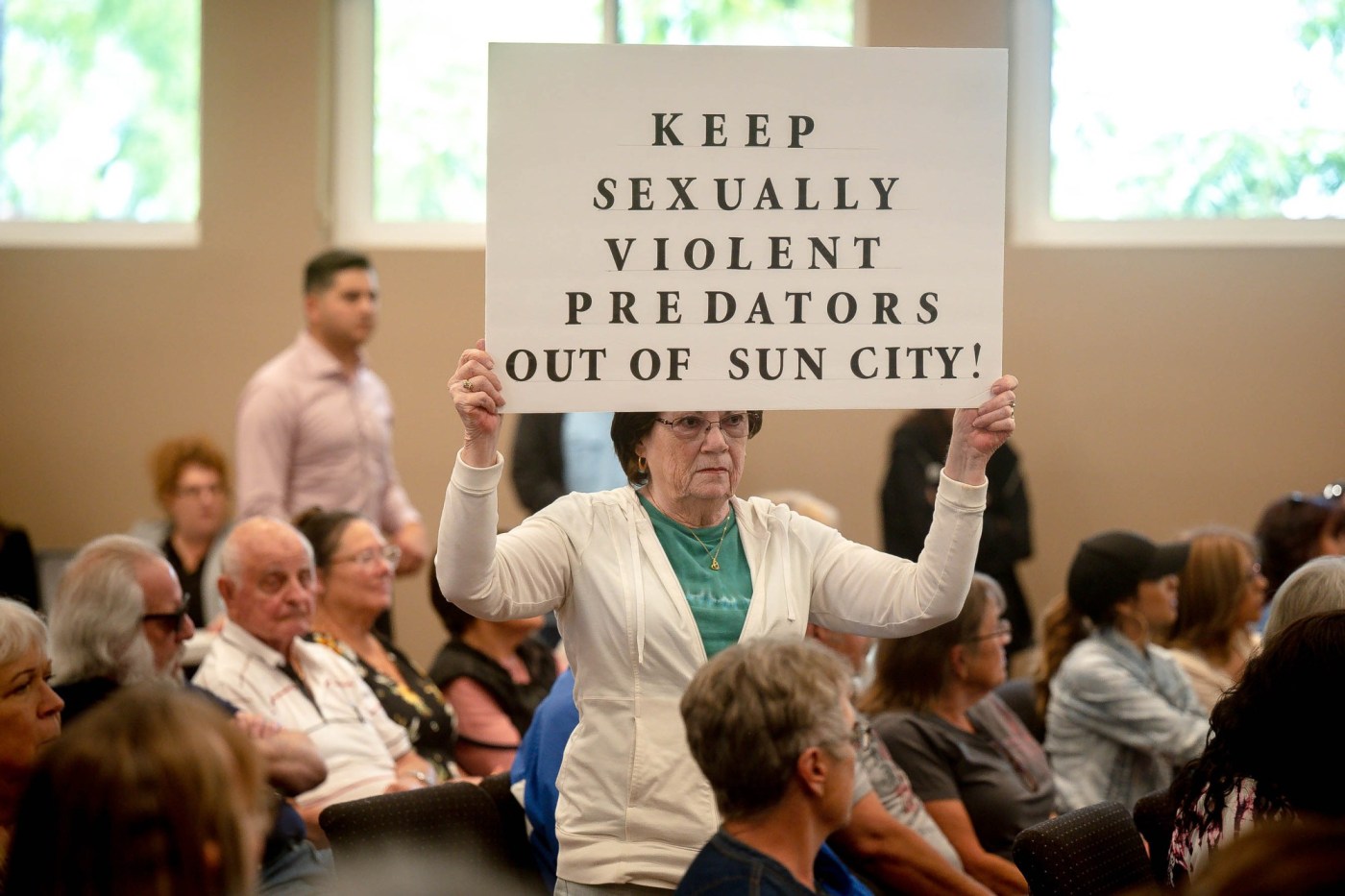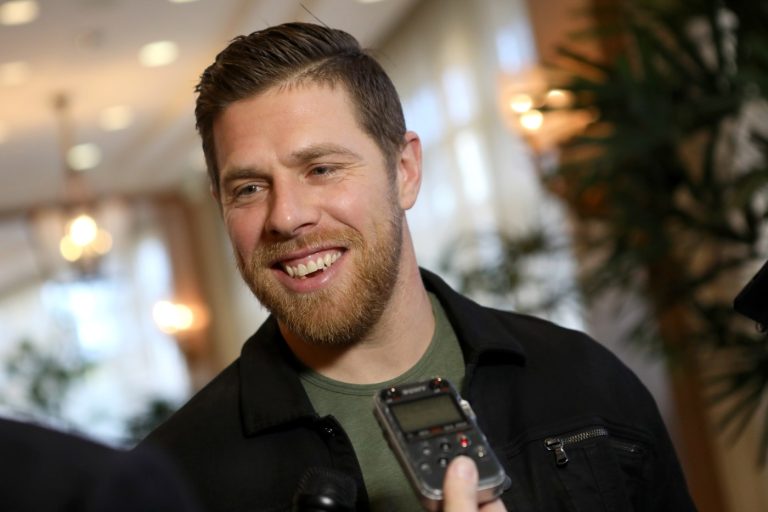Public opposition is making it difficult to reintroduce sexually violent predators into California communities even though they have undergone post-prison treatment that makes them much less likely to reoffend, according to a new state audit.
The 57-page audit released last week said it can take months or even years to find community housing for SVPs, as sexually violent predators are called, after they have finished treatment through California’s conditional release program.
The audit was requested by state Senate Minority Leader Brian W. Jones, R-San Diego, who cited what he described as “public outcry” over the reckless release of SVPs into communities.
“It’s clear the current release program fails to meet expectations and safety standards,” Jones said in a statement.
The audit blamed some deficiencies on cost increases to the $11.5 million conditional release program overseen by the California Department of State Hospital and its failure to hold an outside management vendor accountable.
The DHS said in a statement that it will implement recommendations outlined in the audit.
Transitioning to community life
California designates those convicted of specific sexually violent crimes who also have significant mental health conditions as SVPs, according to the audit.
When SVPs near the end of their prison terms, a county Superior Court judge may civilly commit them for an indefinite period to a state hospital for mental health treatment and participation in the conditional release program. The program aims to safely transition SVPs back into the community after a court has determined they qualify for treatment in a less restrictive outpatient environment.
Pennsylvania-based Liberty Healthcare Corp. manages the program on behalf of DSH. The company did not respond to phone calls and emails seeking comment on the audit.
Public opposition
Since inception of the conditional release program in 2003, only two of the 56 SVPs placed in communities have been convicted of subsequent crimes, according to auditors. In contrast, 24 of 125 non-participating SVPs who were unconditionally released by the courts since 2006 have been convicted of new felonies, including seven sex-related offenses.
Despite the program’s apparent success in combating recidivism, the state faces significant hurdles in placing SVPs into communities due to complex program requirements, a lack of property owners willing to provide rental housing and public opposition.
On average, it takes the state 17 months to place SVP program participants into the community.
As of April, three SVP program participants in Los Angeles County had been awaiting placement for about eight months and one in Orange County had been waiting nine months. Another SVP in Santa Cruz County has been waiting 4 1/2 years for community housing.
“Sex offenders should never be released,” Orange County District Attorney Todd Spitzer said in an email. “With lax state laws, any sex offender release must always be supervised for life with a GPS monitor.”
The Los Angeles County District Attorney’s Office said it is opposed to the release of any SVP who still poses a threat to public safety.
“When courts do order the release of SVPs under state law, their placement should be done in an equitable manner that does not put an undue burden of risk or fear on any one community,” said a statement from the District Attorney’s Office.
In 2023, the San Bernardino County Board of Supervisors adopted a resolution drafted by Chair Dawn Rowe opposing the local placement of sexually violent predators with no known ties to the county.
“We are not California’s dumping ground,” Rowe said at the time. “If the state and the courts insist on releasing dangerous criminals who should probably spend the rest of their lives locked up, they should do it where these people came from, and where adequate resources exist to watch their every move.”
In 2019 and 2021, the supervisors, along with the San Bernardino County Sheriff’s Department and District Attorney’s Office, successfully blocked the placement of SVPs in Joshua Tree and Newberry Springs.
Antelope Valley residents are currently fighting the placement of 74-year-old Christopher Hubbart, dubbed the “Pillowcase Rapist,” in the community of Juniper Hills, south of Pearblossom.
Studies on residency restrictions for sex offenders, premised on the notion of “stranger danger,” have repeatedly shown that they do not affect recidivism, Daniel Lambright, a senior staff attorney for the New York Civil Liberties Union, said in 2022.
In 86% of sex offense cases, the offender and victims are family members, meaning residency restrictions would not have prevented the offense, Lambright noted.
Auditors recommended that DSH analyze the benefits and feasibility of establishing transitional housing for SVP participants, an idea that Jones supports.
“As we’ve said all along, SVPs should be housed on state property under constant supervision, as past governors have mandated,” he said. “The auditor’s suggestion of transitional housing — even on state-monitored grounds — is a step DSH has stubbornly resisted but deserves serious consideration.”
Program deficiencies
The cost of administering the SVP program has significantly increased, from $6.6 million in 2018-19 to $11.5 million in 2022-23.
Most of the expenditures are related to the state’s annual payments to Liberty Healthcare, which have ballooned from $5.3 million to $9.4 million in recent years, due to an increase in program participants and housing prices.
DSH has not been successful in obtaining bids for program services from any vendor other than Liberty Healthcare, despite four such attempts.
Related Articles
Early release program for aging inmates helps clear out California prisons, but at what cost?
Two hospitalized after East Bay shooting
Deputies respond to false report of bomb at Saratoga synagogue
After allegedly shooting three people, an East Bay man ordered a Lyft. It led to his arrest on attempted murder charges
Witness testifies East Bay woman on trial for 2021 killing told him ‘to hide the body’
Auditors found the DSH has failed to provide oversight of lingering deficiencies in Liberty Healthcare’s management of the program involving providing records access to off-site DHS staff.
DSH does not have effective oversight to track and monitor Liberty Healthcare’s implementation of recommendations resulting from reviews, the audit states.
Liberty Healthcare also had not updated its contraband policy since 2011 and had not consistently and adequately trained its staff to testify in court, the audit said.
“DSH’s contract with Liberty Healthcare requires DSH to establish a deadline for Liberty Healthcare to correct any deficiencies that DSH identifies in its audits and reviews, noting that failure by Liberty Healthcare to correct deficiencies in a timely manner would constitute a reason for termination of the contract,” the audit said.












